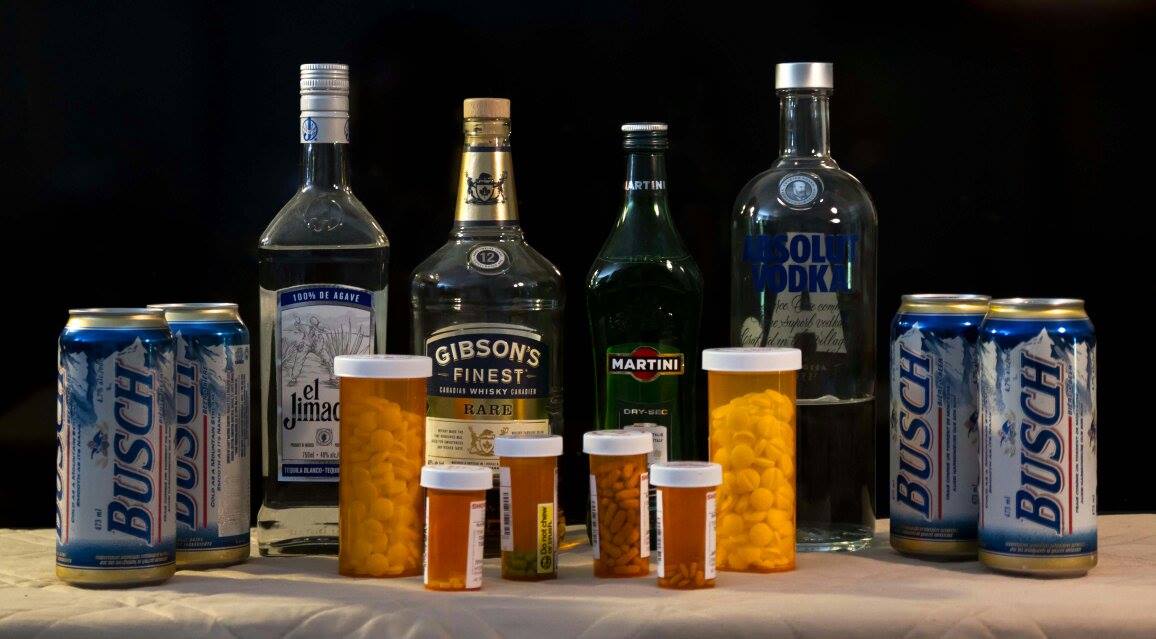Seroquel Alcohol Interaction

Seroquel Alcohol
Seroquel generic name quetiapine belong to a family of drugs known as antipsychotic medicines which work by changing the actions of chemicals in the brain and is used to treat schizophrenia in adults and children over the age of 13.
It is also used to treat bipolar disorder also known as manic depression in adults and children 10 or older.
Seroquel is also used with other antidepressants to treat major depressive disorder in adults but is not for use with disorders related to dementia.
It is suggested no alcohol not even moderate drinking while using this drug as the drug’s effectiveness may be decreased and the side effects may be increased.
At this time the medical community defines moderate consumption of alcohol as no more than two drinks per day and no more than 14 drinks per week. If anything more than that it is considered an unhealthy dependency on alcohol that may have adverse social, family and health consequences.
If a person drinks only once or twice a week but drinks on the same days each week and more than two drinks this is considered as an alcohol dependency.
If a person binge drinks at any time during the week this is also considered as alcoholism.
Some consider alcoholism as a disease while others consider it an addiction which is the result of personal choice and character fault. This school of thought blames the alcoholism on life style choices.
Personally I consider alcoholism a genetic tendency as I have seen families of alcoholics even when they live far apart. These unfortunate people are probably dependent on alcohol from the first drink.
When alcohol interacts with prescription over the counter drugs it usually results in negative health effects most especially liver damage as the main organ affected.
Before using this drug advise your doctor if you are allergic to any other drug or substance, if you are using dietary or herbal supplements, are pregnant, plan to be or are breastfeeding, have a history of kidney or liver disease, heart disease, high blood pressure, heart rhythm problems, history of heart attack or stroke, history of low blood cell counts, thyroid disorder, seizures, epilepsy, cataracts, hig cholesterol or triglycerides, family diabetes or trouble swallowing.
Side Effects
Less serious side effects are dizzy, drowsy, tired, dry mouth, sore throat, stomach pain, upset stomach, nausea, vomiting, constipation, breast swelling or discharge, missed menstrual periods, increased appetite or weight gain. If these occur call your physician for advice.
Serious side effects are severe allergic reactions such as hives difficult breathing, tight chest, swelling of the mouth, face, lips or tongue, stiff rigid muscles, high fever, sweating , confusion, fast uneven heartbeats, tremors, feeling faint, uncontrolled muscle movements, trouble swallowing, speech problems, tremors, restless muscle movements in eyes, tongue, jaw, neck, arms or legs, unusual appearance of the face, trouble swallowing, speech problems, blurred vision, eye pain, seeing halos around lights, increased thirst and urination, excessive hunger, fruity breath odour, weak, nausea, vomiting, fever, chills, body aches, flu symptoms or white patches or sores inside the mouth or on the lips.If these occur get emergency medical help.
This site serves as an information source only and does not dispense medical advice or any other kind of advice. If you are seeking medical advice you are advised to consult your own physician.
Seroquel Alcohol Seroquel Alcohol
Return from Seroquel Alcohol to home page
Hard copy and E book for sale. What's Killing You and What You Can Do About It. Click here.
Hard copy and E book for sale. Introduction to Building Mechanical Systems. Click here.